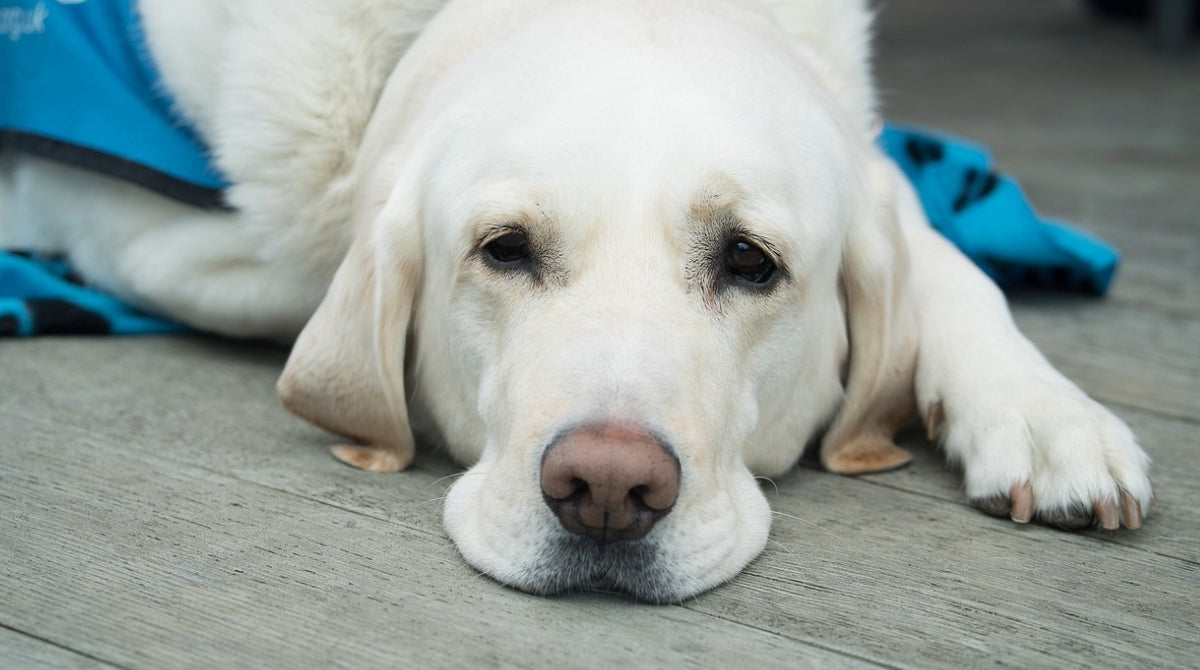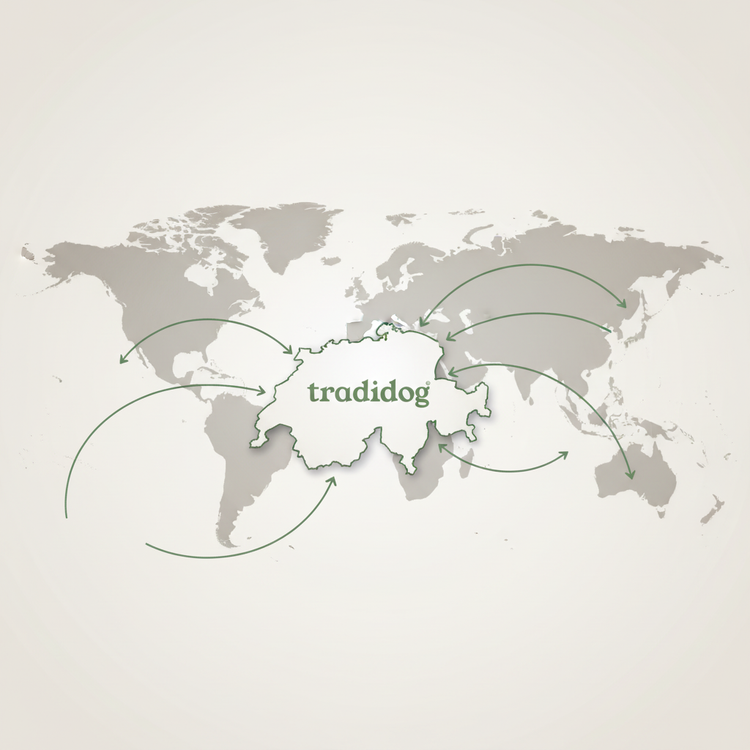
Diarrhea in dogs
One morning, you wake up, ready to face a new day, but before you can sip your first cup of coffee, an unpleasant surprise awaits you on the living room carpet. Your dog stares at you with wide, innocent eyes, while you wonder, "What's going on?" Diarrhea in dogs is one of the less glamorous aspects of living with our four-legged friends, but it happens. And not only is it unpleasant for you, it's also a sign that something is wrong with your dog's digestive system.
Whether it's a harmless stomach upset or a more serious problem depends on several factors. In this article, you'll learn why your dog gets diarrhea, how you can help, and when it's best to call the vet.
Why does your dog get diarrhea?
Diarrhea is not a disease, but a symptom that can be caused by various factors. Here are the most common:
Dietary causes
- Sudden change in food : A new type of food or treats can irritate a sensitive dog stomach.
- Food intolerances or allergies : Some dogs are sensitive to certain ingredients such as grains, soy or certain proteins.
- Eating spoiled food : Your dog may have stolen something from the trash or eaten something unknown while out for a walk.
Infections and parasites
- Bacterial infections : Salmonella, E. coli or Campylobacter can cause diarrhea.
- Viruses : Parvovirus or rotaviruses are known triggers.
- Parasites : Worms or Giardia are common culprits, especially in young dogs.
Stress and excitement
- Changes like moving, visiting strangers, or even a visit to the vet can disrupt your dog's gastrointestinal tract.
Diseases of the organs
- Liver or kidney problems , pancreatitis (inflammation of the pancreas) or inflammatory bowel disease can cause chronic diarrhea.
Symptoms you should keep an eye on
Diarrhea can vary in intensity. Look for the following signs to help you assess the severity of the problem:
- Frequency and consistency : Does your dog have a single bout of soft stools, or does he have several bouts of watery diarrhea a day?
- Color of stool : Bloody or black (tarry) diarrhea indicates internal bleeding.
- Accompanying symptoms : loss of appetite, vomiting, lethargy or fever.
- Signs of dehydration : Dry mucous membranes, sunken eyes or heavy panting are warning signs.
What can you do if your dog has diarrhea?
If your dog has diarrhea, you can often help with simple measures.
Take a feeding break
- Don't give your dog any food for 12 to 24 hours to allow his digestive tract to settle. However, make sure he always has access to fresh water to avoid dehydration.
Offer light, bland food
After the feeding break, you can start with easily digestible food:
- Boiled rice with chicken (no spices).
- Low-fat cottage cheese or potatoes
- Zucchini steamed and cooked
- cottage cheese
- unsweetened applesauce
Electrolyte solution
- If your dog is already weakened, an electrolyte solution can help balance fluid and mineral levels. Ask your veterinarian about suitable products.
Probiotics
- Probiotic supplements can support the intestinal flora and help restore balance to the digestive tract.
When should you go to the vet?
There are situations in which you should not hesitate for long:
- Persistent diarrhea lasting more than 24 hours, especially if your dog appears lethargic.
- Blood in the stool or black, tarry diarrhea.
- High fever , severe vomiting, or signs of dehydration.
- Puppies or older dogs are particularly at risk and should be examined by a veterinarian more quickly if they have diarrhea.
Possible treatments at the veterinarian
The veterinarian will determine the exact cause of the diarrhea. The following measures can be taken:
- Stool sample analysis : To identify parasites, bacteria or viruses.
- Blood test : To check organ function.
- Medications : Antibiotics for bacterial infections, worm treatments or medications to regulate the intestinal tract.
- Infusions : To combat dehydration and restore electrolyte balance.
Prevention: How to keep your dog healthy
- Slow food changes : Give your dog time to get used to new food by introducing it gradually over 7-10 days.
- Regular deworming and preventative examinations.
- No trash or unknown snacks : Make sure your dog doesn't pick up anything fresh from the ground outside.
- Reduce stress : Create a calm and stable environment to prevent stress-related diarrhea.
A quick aside: We at tradidog contribute to better health for your dog with our dog food supplements . Be sure to try one of our products to do something good for your dog. We recommend the Starter Set Classic to get you started:

Conclusion
Diarrhea in dogs is a symptom that can have many different causes – from a harmless stomach upset to more serious health problems such as infections or organ disease. As a dog owner, it's important to be vigilant and closely monitor the circumstances. Short-term, one-off diarrhea is often harmless and can be easily controlled with a break from feeding and a bland diet.
However, if diarrhea occurs more frequently, lasts longer, or is accompanied by symptoms such as vomiting, fever, or blood in the stool, you should definitely consult a veterinarian. Puppies, older dogs, or animals with pre-existing medical conditions are particularly at risk and need immediate attention to avoid complications such as dehydration.
With a balanced diet, gradual food changes, and regular veterinary checkups, you can prevent many causes of diarrhea. This way, you can ensure that your dog stays healthy and you can enjoy everyday life together without worry.
Tradidog motto: If your dog has diarrhea again, keep a close eye on it!
Share

